
THE VOICE OF INTERNATIONAL LITHUANIA
|
VilNews has its own Google archive! Type a word in the above search box to find any article.
You can also follow us on Facebook. We have two different pages. Click to open and join.
|
Litvak forum
It is possible to offer some counterweight
- Posted by - (1) Comment
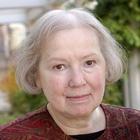
By: Myra Sklarew
When I stood in Rotuses Square in Kaunas last September, I listened to a young man speak about the burden he had carried in his young life to know that his own grandfather had been one of the killers during the War, a member of the Lithuanian Activist Front and part of a mobile killing unit. The young man asked forgiveness.
And when I stood with a group of some fifty people next to the place of massacre of over 2000 Jewish people in Kedainiai—a place where twenty-nine of my own family members were murdered, I saw how Lithuanians were making the enormous passage across time and cultural divide to embrace a wrong that they had nothing to do with. I ask myself if I have done enough in my own country to right the wrongs committed by my forebears.
Thus, when neo-Nazis march through the streets of Vilnius and Kaunas, they not only bring harm and pain to Jewish people but to Lithuanians who have made and are making efforts to come to know those who were their neighbors for centuries, as were my grandparents and their parents before them, village farmers. I thank the Lithuanians for every single effort they are making to come to terms with this past, for schoolchildren who bring small stones to the graves and massacre places on Holocaust Remembrance Day, by way of their remembrance. I thank the teachers who bring the study of those who once lived among them into the focus of learning. I thank the teacher whose students identified very single house in one village, the families who once lived there, making the hidden and anonymous past alive and literally on the map. I thank the teacher, who long before others had begun this—and not without risk-- had her students interview their grandparents about their former neighbors who often comprised half of their village.
If it is not possible to stop the Neo-Nazi march, then surely it is possible to offer some counterweight, some teaching by Lithuanians—Jewish and Christian together—in public forums and media to bring understanding and education, Of course, it would help if the Lithuanian government took a stand against these marches. Though we honor free speech in my country, the government has ways of subduing the hate--requiring a march to take place at the edge of town rather than in the center, encouraging active counterpoint and teaching. assisting those who wish to protest against hate groups that they may do so without harm. It is no secret that the demonstration of radical hate gives permission to those on the fringe of society to act against others as well. The tight power structure of the neo-Nazis where individual
identity is submerged in the power of the leader does away with any capacity for empathy.
Though we count on our leaders to offer appropriate boundaries and limits, we have learned long ago in America that change also happens through individual action, not only through dictates from above.
Myra Sklarew, USA
February 26, 2012
- Bookmark :
- Digg
- del.icio.us
- Stumbleupon
- Redit it
“There is always something growing”
- Posted by - (2) Comment
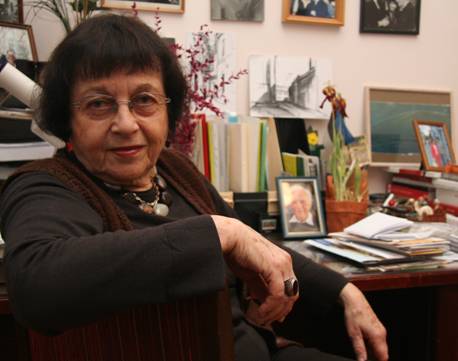
Professor Irena Veisaite
An Interview of Irena Veisaite by Ellen Cassedy April 26, 2011
Irena, you are a Holocaust survivor and have long been involved in Holocaust education initiatives in Lithuania. What do people outside Lithuania need to know about intolerance inside Lithuania today?
Of course there are examples of intolerance in Lithuania. All over the world there is intolerance. But there are also many attempts to promote tolerance in Lithuania. You should not always see only the negative side. We must appreciate positive steps as well.
What about the neo-Nazi march in Vilnius on March 11, independence day, and the swastika flags and anti-Semitic banner that appeared on Hitler’s birthday?
It is upsetting that this happened and that some young people joined that march. But it is also worth noting that both government and society at large reacted in protest against these incidents.
Lithuania’s foreign ministry and the Speaker of the Seimas, Dr. Irena Degutiene, reacted strongly against the anti-Semitic outbreaks on the day of Hitler's birthday. The reaction against the march on March 11 was not as strong and as far as I remember, it was mainly Kubilius who reacted.
There is always something growing. This makes me hopeful.
What is being done to promote tolerance in Lithuania, and what more should be done?
A great deal is being done. In a short interview it is impossible to mention everything. Just a few examples: When Lithuania declared its independence in 1990, there was almost nothing on this topic. Now we have about 60 books researching the terribly painful history of the end of Litvak history and culture in Lithuania. We have three books about the Roma Holocaust in the country. Our textbooks are changing toward openness and tolerance to Lithuania’s minorities, though they are not yet perfect. We’re educating our teachers, with the help of the US Holocaust Memorial Museum.
We also have many very active Educational Centers all over the country which are teaching the history of the Holocaust. A wonderful, modern exhibition has opened in the Museum of Tolerance in Vilnius Our government has designated 2011 as the Year of Holocaust Remembrance in Lithuania. Many events, discussions, conferences on this painful issue are planned.
For young people all over the world, the Holocaust is so remote that they can barely imagine it could happen. But we all need to learn about the Holocaust, not only because of the terrible things that happened, but because we need to understand that every one of us could in certain circumstances become a perpetrator. Every day we see how people are manipulated, how people are infected with hatred. As the famous Polish-British sociologist Zygmunt Bauman has stated in his book, Modernity and the Holocaust," the Holocaust is not a specific Jewish problem; it is a problem of modern society as a whole.
When we speak about the Holocaust in Lithuania or other Eastern European countries to people who also experienced the Gulag, we can’t ignore their experience. If we want to work toward mutual understanding, we must not become rivals as to who’s a bigger victim , but respect any victim of mass murder.
You have spoken of the need for "intolerance of intolerance." Can you explain?
No doubt. we should be intolerant of intolerance whenever and wherever it occurs. And we have first of all to apply it to ourselves. We can’t tolerate corruption, coercion, violence, etc. We have to fight it, but never overstep the border of tolerance. People are brought up differently, they live in different cultures and traditions, they have different experiences and therefore they can have different opinions and feelings, which have to be tolerated.
What can people outside of Lithuania do to help promote tolerance in Lithuania?
People from outside Lithuania should be very careful about interfering. They can speak of their own experience, but when a person from outside any country comes to teach local people how to act, you have to know the local situation very well and find the right way to speak. You must have tact. You have to understand the education people received, and their experiences. Otherwise you will face unexpected consequences.
Only one little example. In February, I attended a conference in London called “No Simple Stories,” which brought together well-known historians from the US, Israel, Germany, England, and Lithuania. We examined Jewish-Lithuanian relations – the years of coexistence and the years of violence. It was wonderful, very open and very honest. But at the end came a professor from outside with two cameraman, who read a statement which insulted all participants, accusing them in hiding the truth about the Holocaust in Lithuania. Such declarations don’t help, they only create bad blood and make a fair dialogue impossible.
Professor Irena Veisaite was a founder of the Open Society Fund – Lithuania and is now ombudsman of the Open Society Institute. For the past 15 years, she has participated in Holocaust education initiatives in Lithuania. She has been honored by the Lithuanian government with the Gediminas Order. The Sugihara Foundation nominated her as the Person of Tolerance in 2002. She lives in Vilnius.
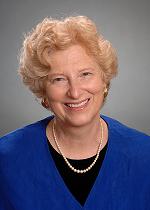 |
Ellen Cassedy traces her Jewish family roots to Rokiskis and Siauliai. Her book, "We Are Here: Memories of the Lithuanian Holocaust," will be published in March of 2012. She lives in Washington, D.C. Visit her website at www.ellencassedy.com. |
- Bookmark :
- Digg
- del.icio.us
- Stumbleupon
- Redit it
Postcards from the past
- Posted by - (4) Comment
Postcards collected by Stephanie Comfort, Texas, USA

Jewish market, Vilnius.
Stephanie Comfort, from Dallas, Texas, has over many years been an eager collector of old Jewsih postcards. Here is how she describes her ‘hobby’:
“I have the collecting gene: I collect dead Jews, their synagogues, their marketplaces and their family life - of the over 6,000,000 that were killed by the Germans and their countrymen "neighbours" there are few left to say Kaddish for them or to remember them. My Rabbi - Kenneth Roseman of Dallas once said that I am "Redeeming the Captives" by collecting the postcards and photos of them. I also collect and honour those few that saved them. In Lithuania it was the Japanese Consul to Lithuania, Chuin Sugihara, who was housed in Kaunas/Kovno (the Yiddish name) and although demanded to return with his family by the government of Japan he stayed and spent 24 hours a day - along with his wife - filling out visas which saved thousands of Lithuanian Jews. He was still filling them when on the train departing and throwing them out of the window. Upon his return to Japan he was removed from his position and never worked again. When the State of Israel discovered that they were destitute they paid them a yearly salary and educated his children. He - and other "Righteous Gentiles" (non-Jews) that saved Jews (proved via testamony) are honoured in the garden of Yad VaShem (Holocaust Museum) in Jerusalem, Israel by having a tree planted in their name.”
“I, myself, have visited Lithuania twice - stood in the Polnar Forest outside of Vilnius/Vilna and in the 9th Fort outside of Kaunas/Kovno and where the Kovno used to stand and where the Jewish patients, Jewish Nurses and Jewish Doctors were locked into the Jewish Hospital and set on fire and in front of the Sugihara home and was so very thankful to him and his family.”
“I was born in Brooklyn, New York to parents also born there BUT was also raised by maternal grandparents who came over from Russia, Poland - areas called The Pale or White Russia - today parts of the Ukraine. I was raised early on the stories of Pogroms .... my Great Grandfather was crucified during an Easter pogrom - nailed against a door. My Grandfather quickly grew a beard and came to the USA as his father. My Grandmother used to tell about the Christian peasants that used to "sic" their dogs on them in the fields where they walked and worked.”
“I have lived in Dallas, Texas for the past 44 yrs. although most of my schooling was in California. I have been a professional weaver - with one of my pieces being in the Dallas Museum of Art for a couple of months. I have been a jeweller - working primarily in gold with some silver and making jewelry and Judaica. During those years I also spent several months each summer in Israel studying Biblical Archaeology - called it sending Mother to Camp. For 4 seasons I worked in The City of David in Jerusalem and 2 seasons at Tel Dor on the Coast.”
“My husband and I travel a bit and about 15 years ago we went for the first time (there was also a second time) to the Camps in Poland: Auschwitz Birkenau, Treblinka, Madjanek and the killing fields in the towns with Ghettos. We stood in Budapest (3 visits) at the Danube where the Jews were tied 3 together so that only one bullet need be used. In the Czech Republic (3 visits) we've visited Theresenstadt/Terezin and in Lithuania (twice) the Polnar Forest and the 9th Fort. In Germany once it was Dachau and the Exposition Field where the Israeli Olympic wrestlers were killed in 1972. This all started me in collecting postcards of Jews that "were" knowing most of them were killed in the Holocaust not only by the Germans but ALSO by their fellow Lithuanians, Croatians, Latvians, Romanians, etc. etc. In fact it was only the Finns, the Danes, the Bulgarians, the Albanians and the Moroccans that were decent enough and brave enough to say NO.”
“Now with so many Holocaust deniers I fear that soon Europeans will start also denying that Jews ever lived in their countries - ergo - I document, document, document.”
“I think the story of how the Jewish Karaites were saved in Troki (Trakai) is interesting. When the German Commanded asked the Chief Rabbi of Vilna if they were also Jewish - his not liking the way they practiced their Judaism - said NO.”
“I was born during WW2 and remember the hushes when I would enter a room as a child - and the tears - and the names of relatives I would never know.”

Kaunas synagogue 1926.

Kaunas (Kovno) Chief Rabbi.


Jewish school 1926.

Jewish market, Vilnius.

Vilnius ghetto during World War II.

Vilnius, new synagogue.

Wooden synagogue, Žiežmariai (between Vilnius and Kaunas).

Old Vilnius synagogue.
- Bookmark :
- Digg
- del.icio.us
- Stumbleupon
- Redit it
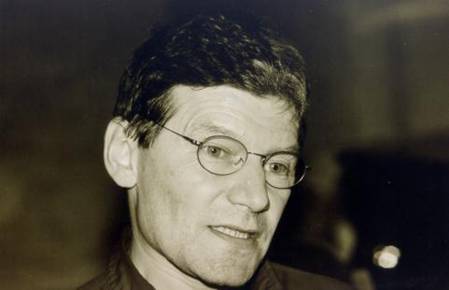
Markas Zingeris
Photo: Džojos Barysaitės
Markas Zingeris interviewed by Diana Koval
Markas Zingeris - a well-known writer, poet, journalist and director of the Vilna Gaon Jewish State museum, in an interview by Vilnews, shared his thoughts on intolerance and anti-Semitism issues in today’s Lithuania.
Q. Anti-Semitic displays in modern-day Lithuania happen quite often. For example, last month someone hoisted up swastika flags on Tauro hill in Vilnius and hung a poster with anti-Semitic slogans near the Kaunas Jewish synagogue. Why do you think such events are happening now? Another question - whether the public or the government is too indifferent to such a phenomenon? The investigation of Petras Stankeras case was terminated due to lack of evidence. Doesn’t it show public aloofness?
M. Z. It shows the lack of determination among the lawyers, or lack of consensus on some really central issues. Personally, I think it is the serious gap in humanitarian education among members of the judiciary, politicians, journalists and the lack of in-depth understanding of history of the twentieth century. In general, it is the absence of common accepted views about the past in a society stuck in the crossroads between East and West, Past and the Future.
Holocaust was denied on the pages of the magazine “Veidas” and this is an offence by law. So somebody needs to take a responsibility and this is either the author of the article or the editors. Just stopping the case wouldn’t do.
Western societies have went to the present-day understanding of crimes of WWII, particularly the Holocaust, a long road, from the Eichmann trial in Jerusalem in the sixties and students revolt in Germany, when children started to put uneasy questions to their parents as to what the latter were doing and where they were serving during WW II. Meanwhile, the Communist regime here concealed the racist motives of Nazi crimes. Communists put the focus on the crimes against “Soviet people” or against people in general, but kept silent about the reasons of Hitler's anti-Semitism ideology. They have censored the works of art, such as Vasiliji Grossman’s epic novel “Life and Fate”: or Jevtushenko’s poem Babiji Yar. There were few exceptions, such as Icchokas Meras with his ghetto stories, but they could not replace the lack of systematic education of human rights and racism, and anti-Semitism. There were periods were anti-Semitism here was even endorsed by the State. So, people haven’t developed immunity to such phenomena.
Consequently, the older generation is unable to transmit the necessary knowledge to the young that educational institutions in the Western Europe have given to the modern day children. Our educational efforts in this direction are too recent and inconsequenial to affect the society on the grass-roots level. People mainly have a certain stereotypical understanding about the past and, also, fail to fully recognize what is happening in today's world.
Our press is not of much use in this. In my perception, a lack of education and a wider perception beyond the ethnocentric view and lack of analytical understanding of twentieth century realities are the reasons why the wheat isn’t being separated from the chaff quite often among the general readers of the mainstream press and, even more, among the general electorate.
Neo-Nazis are selling themselves as patriots to the mass-audience; they misuse the term patriotism, plant ersatz values and spread seeds of hate.
Again, a remark about the dire political consequences of the decisions by the judiciary, recently the court in Klaipeda decided that the swastika is a symbol of the Balts so the public display of it must be legal. So, congrats, dear judges, it was raised over Tauro Hill in Vilnius in the white circle of the full-blown III Reich flags. Why not any other archaeological excavations have been chosen as an ancient symbol of the Balts, but swastika?
Yes, swastikas are common among the archaeological excavations, yes, it is the symbol of the sun, and Hitler also believed that. But let’s de-camouflage it. It is just rhetoric used by contemporary neo-Nazi organizers. Besides, it looks like their patrons are the mainstream party “tautininkai”. Quite often nor our legal institutions, nor our politicians and journalists are able to point out their demagoguery, to drag this camouflage of “patriotism” away, although our public intellectuals were not misled.
We may eventually develop a serious illness of society, as Russia has it, where neo-Nazis and extremists march in orderly columns on various occasions and, as we here, they often turn into violent gangs. We’ve had already had here an attack on a movie-theatre were an anti-fascist film was shown. Unfortunately, without effective response this phenomenon will deepen, expand and we may have some Neo-Nazis taking Parliament seats in due time. I would add that the reaction of the Jewish community was provincial and helpless, at best. Therefore, we have a whole series of events that constitute a favorable ground for such an aggressive phenomenon.
Q. Do you think that some state politicians probably weren’t responsive enough?
M. Z. The ruling party responded with a statement. And I think that the decision was difficult to make, because the ruling party is a cross-party alliance formation. Though the President’s initial reaction was rather vague, later she responded with more determination. So has responded the Prime Minister. In general, the ruling echelon was aware, and some politicians realize that this may be a serious development problem of our society. Somebody must diagnose this phenomenon, which is spreading and becoming more aggressive. It seems to me, that delayed response to extremism encourages extremism. Historically, extremism grows when forces of mainstream or of opposing political camps stay fragmented and hesitant.
Q. Lithuania is a young country. Maybe it just needs more time to rise a new generation, guided by other values, and oriented towards the West?
M. Z. Thinking of it in the silence of my office, sure, that would be very nice. But life out there is different. Everything spreads and develops with the speed of light in the modern world – Arab revolutions, the economic crisis . . . There seems to be no sustainable development. The world evolves convulsively and it is difficult to forecast. 2 + 2 is not four, but, say, 9/11.
Q. In your opinion, what is needed for Lithuania to get on the right path?
M. Z. All this rhetoric is discredited and it seems impossible to have a monopoly on truth, because as I have said the world is changing rapidly. However, there are certain values that need to reach the minds and hearts of as many people as it is possible. Those values are moderation, openness to each other, to minorities and, of course, respect for human rights.
I’d value a belief that the embrace is a more fruitful position than is the self-defense boxing pose of the outdated worldview against the whole present-day world – the East and the West. These demonstrators on March 11 shouted: no to East, no to West. I would say, yes to East, and yes to West! It is better to take everything that is best from everywhere. But indeed a well-educated generation and wise politicians are necessary. And I’ll just share with you some pipe-dreams, if I start writing prescriptions, so I wouldn’t do that. I think what is urgently needed is the political maturity of Lithuania as well as a strong middle class. Unfortunately, these things do not come all-at-once.
Q. Do you have something to tell, that I possibly haven’t asked?
M. Z. It seems to me at this time, there should be announced a kind of State of emergency in education, which would wisely educate intolerance to intolerance. Writers, intellectuals also should regain lost positions in society. Indeed, intellect is completely undervalued in Lithuania. Society should have supported achievements of their intellectuals and future potential Nobel laureates, as enthusiastically as it is supporting its basketball players. In response, there could be a response in a shape of a counterdemonstration in the very center of Vilnius, which was conceded so proudly by Municipality clerks to the radicals on 11 March. A counterdemonstration with completely contrary slogans, wise and peaceful, and a much forceful demonstration at that - this should be an adequate response.
- Bookmark :
- Digg
- del.icio.us
- Stumbleupon
- Redit it
- Posted by - (10) Comment
OPENED TODAY, FRIDAY 16 DECEMBER 2011
First Jewish library in Lithuania
since WWII

“Failure is impossible,” is the title of the book that was held by Lithuania’s Minister of Culture, Arūnas Gelūnas (left), at the opening of the Vilnius Jewish Public Library Friday 16 December. Wyman Brent, the Californian book collector behind the amazing collection of more than 5.000 books, plus videos and CDs, says today is one of the happiest days in his life.
Photo: Aage Myhre.
Friday 16 December 2011 the new Vilnius Jewish Public Library, located at Gedimino Avenue 24, 2nd floor, in Vilnius was officially opened. Guests from USA, Israel, European Parliament, Seimas (Lithuania’s parliament) of the Republic of Lithuania, Government of the Republic of Lithuania, Lithuanian Ministry of Culture, Lithuanian Ministry of Foreign Affairs and others were participating.
On Saturday 17 December 2011, from 11:00 to 17:00 the library will be open to the general public, giving everyone an opportunity to view the premises, the collection of books and photographs, the exhibits, and a presentation of a slide-show giving a retrospective of the establishment of the library. Visitors will be greeted and will have the opportunity to speak with the initiators of the library.
The impetus for the library was from a private collector, humanitarian, and visitor from the USA -- Mr. Wyman Brent. His initiative was to bring to Vilnius, and thereby to pass to Lithuania, a collection containing more than 5,000 valuable books. The collection consists of books by Jewish authors, as well as books on Judaism by non-Jewish authors.
Wyman Brent first came to Vilnius in 1994, telling that he fell in love with Vilnius already by then. Over the course of several years, he become interested in Jewish culture, history, and heritage, and came to follow the path towards his dream -- to establish a Jewish Library in Vilnius.
Wyman Brent is convinced that as soon as the library officially opens its doors, then the love of Litvaks (i.e., Lithuanian Jews) and their longing for their old motherland of Lithuania will encourage a continuous flow of literary, artistic, and informational valuables to The Northern Jerusalem, as Vilnius was once called. Moreover, the library will urge many peoples to visit Lithuania in attempts to rebuild devastated human and cultural treasures, and to re-establish internal and international bridges.
Activities of the Vilnius Jewish Public Library will encourage visitors to revive the traditions of Jewish book culture and community libraries, offering a public space to encourage knowledge of the capital’s cultural diversity and history, and will become a cultural center with a variety of continuing exhibitions, events, meetings, and concerts.
Vilnius Jewish Public Library is founded as a structural sub-division of the Vilnius County Adomas Mickevicius Public Library.

Panel at the press conference (l/r): Head of the library Davia Kiminaite, book collector Wyman Brent,
Rector of the Vilnius Jewish School Miša Jakobas, Director of the Lithuanian Librarians’ Association Petras Zurlys,
Minister of Cultre Arūnas Gelūnas and Member of Parliament Petras Austrevičius.

Daiva Kiminaite is now Head of the Vilnius Jewish Public Library.
If questions or requests, please write Daiva at
daiva.kiminaite@amb.lt

Žilvinas Beliauskas and Director of the Lithuanian Librarians’ Association, Petras Zurlys, have both done a great job
for the realization of the library.

This couple has played a major role in supporting and contributing to the library from their Helsinki location,
Inna Rogatchi and Michael Rogatchi of the ‘Inna & Michael Rogatchi Foundation’.

Rector of the Vilnius Jewish School Miša Jakobas with Wyman Brent.

Composer Anatolijus Šenderovas with Wyman Brent.

Lithuania’s Minister of Culture, Arūnas Gelūnas interviewed by Lithuanian Radio’s correspondent Olga Ugriumova.

Tenor Mindaugas Zimkus with Wyman Brent.

Also Lithuania’s Prime Minister, Andrius Kubilius (centre), came to participate in the opening ceremony.
Photo: William Adan Pahl (Billy Pahl)
- Bookmark :
- Digg
- del.icio.us
- Stumbleupon
- Redit it
- Posted by - (0) Comment
Memory of the Vilnius
sound that once was
"The Eternal Question” / “DI ALTE KASHE”
FRAIDY KATZ sings Yiddish
Produced by Wolf Krakowski and Jim Armenti
The Eternal Question
Top Ten Records of the Year
One World Radio
WHUS, UConnecticut@Storrs
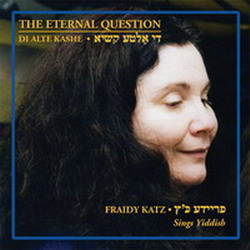
Rated 4.5 stars, George Robinson, Jewish Week, Read Review
- Bookmark :
- Digg
- del.icio.us
- Stumbleupon
- Redit it
- Posted by - (1) Comment
‘Day and Night’ is an epoch-making play for modern Lithuania
7 December 2011
O P I N I O N / R E V I E W
by Birutė Ušinskaitė

Cover of playbill
It was just another rainy, temperate evening in early December of the year 2011, but the play I was privileged to see at the Kaunas Chamber Theater, Day and Night,proved to me, a proud woman of Vilnius, that not all that is bold and brilliant here comes from our capital.
For the first time in our modern Lithuanian history, in my experience at any rate, a Lithuanian play on the Holocaust did not try to deflect attention ― or responsibility ― to the Germans or to some “complicated times” or to some pseudo-objective forces milling about on all sides. Or, to stick to some “kosher” theme like the dilemmas of Jacob Gens and the Judenrat in the Vilna Ghetto in the cause of talking about everythingexcept what is frankly the main point for our country: the voluntary participation of thousands of our countrymen in the mass murder of the Jewish citizens of our own country, in some cases starting before the Nazis even arrived.
For the first time in my life, I have been able to enjoy a quality literary creation where the barbaric and pathologically racist and fascist nature of some members of the Lithuanian Activist Front (LAF) is shown exactly for what it was. In Lithuanian. By and for a Lithuanian audience. That makes me proud.
It is a small theater, and there were perhaps only a hundred people present, but it was in its own way a grand national catharsis that makes me as a born and bred Lithuanian citizen very patriotic in the European sense of the word, where patriotism is loyalty to finding out and facing the truth and not some kind of nationalist whitewash or prejudice toward minorities or other Others.

From the playbill: Period photos and a 1941 poster tell the audience that this will be no whitewash
Day and Night is a signal that at long last we are becoming a mature nation where a theater production can finally portray the simple truth that a not inconsequential portion of these LAF “heroes” were murderers of civilians and spreaders of hate toward fellow natives of their country. That it was done artistically, not with some pietistic declaration, but with a strong and unforgettable scene of two LAFers wrapping the white band around their new colleague’s arm, made it incalculably stronger.
The duration of the two-part play is two and a half hours. I personally found that on the long side, and it could benefit by consolidation of some of the latter scenes. One other point is the choice of the music by composer Faustas Latėnas. In my opinion, “general” Yiddish popular songs are not the best choice. I think that Yiddish folk songs of Kaunas, and specific songs of the city’s Holocaust-era ghetto would have made those portions more authentic. Strange to be making such a fuss about these two things, but maybe that is because just about everything else seemed to be almost perfect from the subtle make-up of the actors, the costumes and hauntingly minimalist set, to the singularly effective lighting effects. The Hitchcock-timed dimming sequence at the beginning of the scenes conveyed a slowly unfolding horror. Yes, and the magnificent acting.
Even though the characters of the play have no necessarily real prototypes, the plot is based on historical facts, testimonies of witnesses and archival documents from the Holocaust era. The actors even read some of the documents aloud and quote them in their dialogues, like, for example, a sickening antisemitic article from a newspaper.
Naturally, some viewers in our country might not understand the significance of the play and why it is necessary to speak about the Holocaust in Lithuania today, so the question naturally arises: Why was this play written in the first place?
As playwright Daiva Čepauskaitė puts it:
“I was searching for a serious and principled topic. And the Kaunas Chamber Theater suggested that I should write about the Holocaust in Lithuania. I took this as a challenge, both as a playwright and as a human being. It was a really difficult task for me as a professional ― it was difficult to find the right language, form and the way to tell the story. But the topic enriched me as a person; I had an opportunity to come up with certain principles and a personal approach. Therefore, I have an answer to the question why I have written this play: I wrote it because I am Lithuanian, because it is our common history and because I do care about things that happened, are happening or will happen in Lithuania. And because it hurts.”
It is a tragic love story, the impossible love of teenagers ― a Lithuanian boy Andrius and a Jewish girl Milda, who are entrapped in a bizarre scenario. The main characters are played by young and inspirationally talented Lithuanian actors: Simona Bladženauskaitė and Vytautas Gasiliūnas. They invent a strange game. They are playing the Holocaust in Lithuania and acting out the love story of Milda’s grandmother Golda, who is now old and not clear of mind. Golda had in fact gone mad when her long-time-ago lover Kostas accidentally got shot right before the end of the Second World War, when Golda turned nineteen.
Andrius and Milda are unable to live their own lives. They are predetermined incarnations of ghosts of their city’s past.
Sometimes Andrius resists Milda’s wish to live in the past. And that is when she starts numbly counting aloud to herself. And he invariably succumbs.
It seems to me that many people in Lithuania, whether they want to know it or not, cannot calmly live out their years and roam the streets of the old ghetto in Vilnius, Kaunas or Šiauliai without getting possessed by the dybbuk of our past. In order to let the old wounds heal and to prevent such horrors from happening once again, it is important to tell the young generation of Lithuanians what we have done to our neighbors. Therefore, it is significant to speak the simple truth about the Holocaust in Lithuania, as well as about the lamentable antisemitism today. On the way back from Kaunas, I opened the 3-4 December 2011 weekend edition of our best daily, Lietuvos rytas, only to find a three page antisemitic yarn, advertised with the blurb “Mystery of the Millions” on the front page over a picture of a Jew in the Kaunas synagogue. For shame.
Daiva Čepauskaitė continues to explain what drove her to write the play.
“When I was writing the play, I was reading some documents in the archives, and one protocol of the court caught my eye. The defendant was asked why he was murdering Jews and he replied: “Because I am Lithuanian.” Then I thought about the many meanings of this word. After all, those who rescued Jews were also Lithuanians. The same word can mean the most honest fight for the freedom of the people, simple humanity, or the lowest instincts. I am also Lithuanian and I wrote this play […] because life and death have no nationality, and because inhumanity is our common enemy.”
The two timelines of the play are looped. Today’s reality intertwines and intersects with the past, and the points of intersection are precisely the most important ones. The ones that hurt like wounds that have never healed. The wounds and the pain are real. Kostas burns his arm badly in order to be able to see Golda, the Jewish girl, with whom he falls passionately in love. He comes on Friday night and Golda has to violate the Sabbath law in order to help him, because Jews are not allowed do any work on the Sabbath.
Golda’s father Berelis Taicas (Berl Teitz), a pharmacist, explains to Kostas what it means to be a Jew: Jewish happiness is a very short time between long periods of unhappiness and misery, which change like day and night. Berelis Taicas says that God has punished him, because he has no son, only two unmarried sisters and three unmarried daughters, and, even worse, he thinks that one of the daughters is too smart for a girl, so how could he be happy.
Then the war breaks out and everything changes, at least for the Jewish citizens of Lithuania. The Red Army withdraws from Kaunas and massacres of Jews start immediately. On 25 June 1941 the German advancing troops (Vorauskommando) enter Kaunas. The situation is horrendous. The infamous massacre of Jewish civilians takes place at the Lietūkis garage in Kaunas on 27 June. It seems that the earth under one’s feet is catching fire. The gang of Klimaitis rages and murders people. Some Kaunas Jews are burned alive. One can smell the fear in the air and some of the city’s Jews try to escape or go into hiding.
On 12 July 1941, a regulation is issued for Jews to wear a yellow star, 8-10 cm width in diameter on the front and on the back. They are not allowed to leave home after 8 PM. Another regulation sets out that Jews have to leave their homes and move into a ghetto in Vilijampolė (Slabódke in Yiddish culture) by 15 August. In Kaunas, Jews are taken to the 7th Fort. Almost all of them are gunned down by volunteer Lithuanian “partisans”. The murderers are nowadays sometimes hailed as “anti-Soviet patriots”.
Moreover, the Provisional Government of Lithuania does not say a word to condemn the ongoing genocide. After five weeks the mass graves of the victims near the 7th Fort start to cause problems. The local inhabitants start to complain about the bad smell. In the second half of July it is forbidden to swim in the Nemunas and the Neris rivers because it is believed that the water is contaminated with the “poison of the corpses”.
Kostas joins the Lithuanian Activist Front (LAF) together with his friends, who instigate racial hatred and genocidal antisemitism. Kostas becomes a Jew-killer, but he saves Golda. Golda’s father is taken away by the young fellows who are wearing white armbands and he never comes back. Golda finds shelter in a hiding-place, a pit under the floor of his house. By day Kostas and his friends murder other Jews, because their task is to liquidate all the “Communists and Jews” though it is Jews who are the primary objects of their passion for murder. By night he makes love to Golda.
Scene from Night and Day. Courtesy Vaida Gedzevičiūtė / Kauno kamerinis teatras
Once Golda inquires of him whether he had shot many of their neighbors and Kostas replies that he had murdered all of them. So that nobody would interfere with their love. Golda attempts suicide, but later she finds out that she is pregnant. One night, after giving birth, she is allowed to have a little walk in the garden. She looks at the starry sky and screams: “Oh, God, the sky is full of Jews! They all are there!”
There are good times and there are bad times in every nation’s life, just like there is day and night, and sometimes we make things of which we cannot be proud, but the story of the Holocaust in Lithuania is the darkest page in the country’s history.
However, the creators of this play, perhaps for the first time in Lithuania’s history, managed to examine and analyze this topic with full honesty. They are not trying to solve any historical dilemmas; their only goal is to frankly and bravely tell what really happened and what kind of mindset made this calamity possible.
The scenes from today actually do more than serve the literary purpose of incarnations of old souls emerging among us, among people just like us, a forever attractive literary device. They are a blunt warning about the advent of antisemitism right here and now which is also presented on stage as it is on the streets (and in our “best” newspapers).
This epoch-making play can and should be translated into English and other languages and produced abroad.
It will do Lithuania proud.
Diena ir naktis.
KAUNO KAMERINIS TEATRAS.
Directed by Stanislovas Rubinovas. Art: Sergėjus Bocullo. Music: Faustas Latėnas.
Starring Simona Bladženauskaitė and Vytautas Gasiliūnas; Alma Masiulionytė, Aleksandras Rubinovas, Violeta Steponkutė; with Kristina Kazakevičiūtė, Daiva Škelevaitė, Asta Steponavičiūtė, Edita Niciūtė.
Birutė Ušinskaitė is a Vilnius translator and memoirist.
Three Page Antisemitic Mini-Tract runs in Lithuania’s Mainstream Daily
- Bookmark :
- Digg
- del.icio.us
- Stumbleupon
- Redit it
Graves matter to Litvaks
- Posted by - (12) Comment
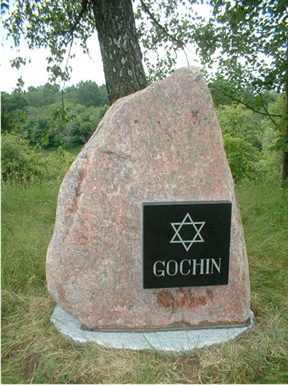
In Janjelgava in Latvia, I found the grave of my Great-Grandfather, it was shattered into thousands of pieces, today it appears in its original state after a complete re-build and restoration to what it would have been when my Grandmother and her siblings would have had it constructed.
Author: Grant Arthur Gochin, Los Angeles, California, USA.
I document my family to the 1700’s in Papile, Akmene District in Lithuania. Jews have lived in Lithuania around 700 years, it is possible that my family has been Lithuanian since the 1300’s. A prerequisite for any Jewish settlement is that a cemetery be built to bury the dead, and so, after 700 years, Lithuania holds many hundreds of Jewish cemeteries, and in all likelihood, there are thousands that had the name Gochin that were buried in the vicinity of Papile.
A religious requirement and a community requirement of Jews is that they maintain and honor the cemeteries of their ancestors, and so, throughout the world where Jews live, one can see clean and neat cemeteries where descendants honor their ancestors. This is very similar to the Lithuanian tradition of All Souls Day where families visit and honor, and remember the graves of their ancestors.
Jews and Lithuanians lived in mostly peaceful coexistence for centuries, when Vilnius was known as the “Jerusalem of the North” and hundreds, if not thousands of Jewish cemeteries existed in the lands of Lithuania.
In 1915, Jews of the Baltics were deported into the Russian territories of the Ukraine and Belarus. An estimated 100,000 Jews of Baltic origin died of starvation and typhus in faraway foreign lands, including the majority of my family. At that time, almost no records remain of their deaths or burials, and 100,000 Baltic Jewish souls have largely been forgotten. From 1919 Jews were allowed to return to Lithuania, and populations began to regenerate. Burials were recorded, cemeteries restored and communal life re-established. Some of my relatives emigrated to South Africa, and new burial grounds were established.
The Holocaust murdered 96.4% of remaining Jews on Lithuanian soil. From a pre-World War 2 population of about 240,000 Jews, an estimated 3,500 Jews now live in Lithuania, a tattered remnant of the great community of learned thinkers and progressives that once inhabited our ancient homelands. For many, the Survivors were the only remnant of their families, all history having been wrenched away from them when their elders and teachers were so brutally murdered. During the Holocaust hundreds of Jewish cemeteries were destroyed, stones used for building materials, or just wanton destruction. The end of the war brought Soviet occupation, where Jewish cemeteries were further deliberately desecrated and destroyed, and most of the remainder were taken back by nature, the great population that populated Lithuania for 700 years was to be forcefully forgotten, and all signs of their presence to be eradicated, so that the last wafting memories of their existence could be destroyed over time.
My beloved Grandfather tried many times to return to Lithuania after the war, but the Soviets barred South African citizens from entering Lithuania, and so, in 1984 he went to his death without ever having been able to visit the graves of his family. The task fell to me to honor my ancestors.
Research showed that 75% of the land of the Jewish cemetery in Papile was now covered with apartment buildings; not a single stone remained standing for a single relative whose memory was now erased from Papile where documents prove at least 250 years of residence. In 2005, I put up one new stone to memorialize all Gochins that must be buried in that cemetery.
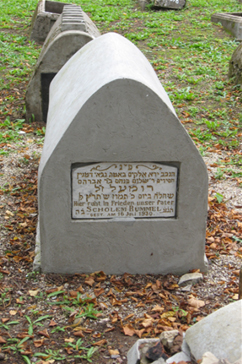
My Maternal Grandmother believed she had been born in Raguva (in fact she was born in Birzai) but given the deaths of both parents during the deportations when she was a young child and the removal of all memory, she had no facts. Research discovered the following photograph from the Raguva Jewish cemetery. I went looking….
After the round up and murder of the Jews of Raguva, local villagers used the gravestones for building material. Stories then spread of “rich Jews” that had been buried with gold fillings, and so much of the remainder of the cemetery was destroyed as people dug for gold from dead bodies. Today, few stones remain. This is not unusual for any Jewish Cemeteries in Lithuania.
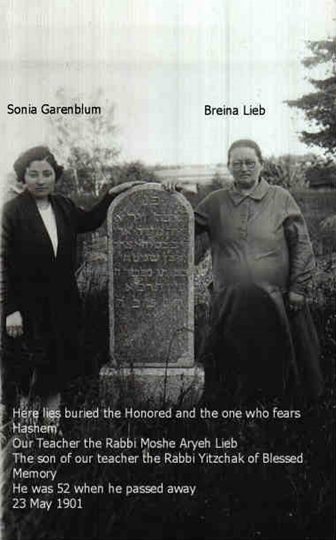
Repeated visits to Raguva failed to restore the cemetery, applications for permission went unanswered and frustration set in. Municipalities in Lithuania are responsible for maintenance of Jewish Gravesites and so Governmental pressure was inconsequential. Restoration may ONLY be done with the cooperation of local officials, and regulation requires that the cemetery soil not be moved, as this would be desecration.
I strongly believe that their colorful lives, their contributions to humanity, their vibrant and learned culture should not be forgotten. Their memory is a blessing, their loss will never be able to be recovered and Lithuania will always be less than it could have been without their presence. To allow their lives to be forgotten is a tragedy none should tolerate. We, who are the descendants of those few that survived, owe it to those who had no surviving descendants to remember them, to clean their cemeteries and acknowledge their existences.
During my journeys and efforts, I made two friends, Sergey Kanovich, Public Relations advisor to the Lithuanian Jewish Community, and son of Grigor Kanovich (Past Chairman of the Lithuanian Jewish Community), and Alexander Avramenko, who believe and think similarly to myself, who value our heritage and our roots and who hold memory as a treasure for the ages. Together we have worked on multiple cemeteries in Lithuania (as can be seen on http://litvak-cemetery.info/index.php?lang=en
Between us, we have built a network on the ground in Lithuania that now know how to navigate the system of municipalities, have volunteers in place to perform the physical work that is needed, and the historians to document information that can be gleaned from the stones. We are connected into the international genealogical Associations that will distribute the information (for free) to any interested people. A non-profit status has now been granted to Maceva in Lithuania. An International Board has been built comprised of historians, government officials and those that care about maintaining and recording the memory of our roots, so that when Jews talk about heritage, we can show our children and grandchildren tangible signs of the greatness of our history, and the combined efforts and travails it took to bring the current generation to the place of safety and position we may now hold.
We, who are not subject to deportations or pogroms for our Jewish birthright, cannot make things better for those that were so badly treated, but we can bring them honor, dignity and remembrance, and give them thanks for where we are today.
Grant Gochin sits on the International Advisory Board of http://litvak-cemetery.info/index.php?lang=en
He is President of www.GAAWS.com and serves as the Honorary Consul of Togo in California, and is Secretary of the Executive Committee of the Los Angeles Consular Corps.
- Bookmark :
- Digg
- del.icio.us
- Stumbleupon
- Redit it
- Posted by - (2) Comment
MACEVA - מצבה
http://www.litvak-cemetery.info/
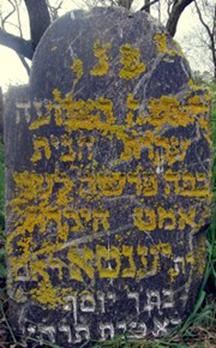
MACEVA (מצבה Matseyva in Hebrew) - In Hebrew language means 'gravestone'.
Lithuania is often referred to as the cradle of Eastern European Jewish culture where a large vibrant Jewish community once flourished. This community’s rich cultural and religious traditions vanished during the Holocaust. According to various estimates, in pre-war Lithuania there were between 200-240 Jewish cemeteries. Today, the majority of them are forgotten and neglected. New buildings were built on top of or next to some old cemetery sites, and gravestones have often been used as construction materials.
Time ruthlessly ravages old graves. These sites often become the target of attacks by vandals. Because of lack of funds and initiative, old Jewish cemeteries are quickly disappearing and the memories of Litvaks (Lithuanian Jews) who are buried there will disappear as well. In Lithuania we walk on the streets paved by Litvaks, we pass houses where they lived, schools where they learned, synagogues where they prayed, theaters where they preformed … a land where they thrived..
Old Jewish cemetery in Lithuania is not simply a burial place. It is part of Lithuanian history and culture.
'MACEVA' is a non-profit organization, which aims to preserve signs of old Jewish cemeteries, for the future generations in Lithuania and the diaspora.
Goals of MACEVA are:
- Collect, catalogue and publicize information about all the pre-WWII Jewish cemeteries in Lithuania. Document through photographs all remaining tombstones in all Jewish cemeteries throughout Lithuania;
- Translate all legible inscriptions from the gravestones and post this information on our website, so that everybody can get a list of cemeteries or a burial list free of charge;
- Whenever possible restore/reconstruct, or at least clean cemeteries, with the assistance of and in cooperation with local municipalities;
- Install permanent memorial plaques at Jewish cemeteries across the country with information about the site and the community;
- Raise awareness among local communities about the Jews who used to live in the neighbourhood and seek their support to look after Jewish cemeteries.
Living people deserve as much respect as they show not to only to those alive, but dead too. Memory can not be nameless.
Realizing MACEVA's goals depends not only on us, but also on you!
Therefore, we welcome everybody’s support - individuals, businesses, governments and non-governmental organizations.
If you are looking for the graves of your ancestors, please click on the "List of Cemeteries" in menu on the left. Here you will find links to the list of cemeteries by county.
- Bookmark :
- Digg
- del.icio.us
- Stumbleupon
- Redit it
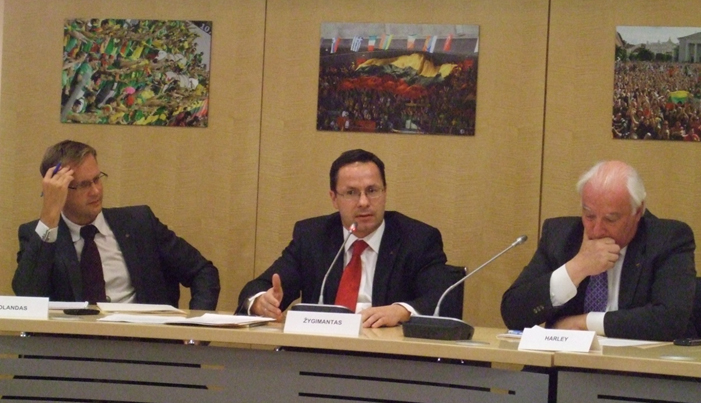
Minister Plenipotentiary Rolandas Kacinskas, Ambassador Zygimantas Pavilionis and Harley Felstein, Project Chairperson.
On the evening of Thursday November 3rd, 2011, the Jewish Lithuanian Heritage Project hosted a roundtable “Think Tank” at the Lithuanian Embassy in Washington D.C. The concept of the think tank originated from a white paper prepared by Harley Felstein, Project Chairperson, and Adrienne Oleck, a Board member.
The meeting drew together concerned intellectuals from the Washington D.C. area and from the Lithuanian Embassy, the Honorable Ambassador Zygimantas Pavilionis and Minister Plenipotentiary Rolandas Kacinskas. The theme of the discussion was, "A comprehensive Five Year plan to improve Lithuanian-Jewish relations: Cultivating Sunflowers."
The Sunflower project will create three core programs focusing on:
1) Communication and Dialogue;
2) Youth engagement and education; and
3) Jewish heritage projects including cemetery restoration.
Ambassador Pavilionis spoke of the harmony that existed for centuries among Lithuanians, Jews and other ethnic group. The Ambassador emphasized the need for a people-to-people dialogue in order to build bridges. The Ambassador stated that only through constructive interchange can the lost connections that existed in the Old World be rediscovered. To demonstrate the Lithuanian eagerness to initiate goodwill, the restitution plan was underway and just two days prior to the think tank meeting, Lithuania was the only Baltic state that supported Israel in voting against Palestinian membership in UNESCO.
For the chairperson, Harley Felstein, the youth are the future - the youth of Lithuania and the youth worldwide. At the meeting, Harley Felstein’s sixteen year old son and student at McClean High School in Virginia, Benjamin Felstein, stated that people are basically all alike and youth from different cultures can bond easily. Benjamin emphasized the youth need to have contact and dialogue. Mark Zaicik, a fourteen year old student at the Sholom Alechim School in Vilnius, Lithuania, stated that the use of social media can improve the interaction between youth but that he hopes to see more personal interaction between Jewish and non-Jewish youth in Lithuanian.
The Sunflower Project is planning a youth exchange and leadership program run by Initiatives in Education. The exchange program will invite Jewish and non-Jewish youth based in Lithuania, Israel, South Africa and America to travel and then continue interaction with each other upon return.
In addition, Ina Navazelskis of the U.S. Holocaust Memorial Museum in Washington D.C. spoke of her upcoming trip to Lithuania for the third such conference for Lithuanian teachers to learn how to teach about the Holocaust in Lithuania
Minister Kacinskas noted the need for interaction between the Jewish and non-Jewish communities of Lithuania. He emphasized that the needed dialogue should be at the grassroots level of people, not between governments. Diana Dvidutis, President of the Lithuanian American Committee of Washington DC agreed that the focus should be on the commonalities we share and the future.
The issues facing Lithuania are similar to the challenges facing Estonia and Latvia. Two individuals from the Baltic States are members of the think-tank and brought a regional perspective to the group. Adir Aronovich, an attorney, gave a brief history of the evolution of the Jewish community within Estonia. Karl Altau, managing director of the Baltic American National Committee, reported that the need to education and improve accurate information to the people living in the Baltic region.
The think tank concept will be replicated in Vilnius, Tel Aviv and Cape Town, South Africa.
The Sunflower Project is planning monthly meetings, dialogues in various communities, cultural events, and the restoration of cemetery sites in Lithuania and most importantly, the exchange of ideas. People to People!
For more information or to participate, please contact Harley Felstein at harleyfelstein@yahoo.com
- Bookmark :
- Digg
- del.icio.us
- Stumbleupon
- Redit it
- Posted by - (3) Comment
Holocaust in Lithuania
Some time ago a reader in the USA wrote the following one-sentence ‘letter’ to the editor of VilNews:
"May Lithuania rot in hell for a 1000 years."

This ‘letter’ resulted in several posts and comments from our readers around the world. We in the editorial team have been very impressed by how informative and balanced most of the posts have been. Probably it is this kind of open, intelligent debate that is needed to build bridges across the gap that emerged in the relationship between Jews and Lithuanians during and after World War II. We thank all who participate, not least the following four: Olga Zabludoff, Donatas Januta, Didier Bertin and Yves Plasseraud:
- Bookmark :
- Digg
- del.icio.us
- Stumbleupon
- Redit it
“Facing History: The Burden of 1941”
- Posted by - (4) Comment
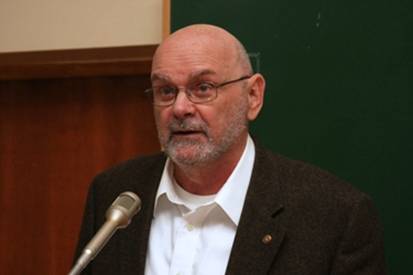
Dr. Saulius Suziedelis.
Scholar of Lithuania’s Holocaust history.
Photo: www.komisija.lt/lt/naujiena.php?id=1301995164
By Ellen Cassedy
“The only way for Lithuanians to lighten the difficult history of 1941 is to embrace it.”
The writer of these words, Dr. Saulius Suziedelis of Millersville, Pennsylvania, USA, will be honored in Vilnius on November 18, 2011, by the Lithuanian Ministry of Education and Science.
Also receiving awards will be Dr. Vytautas Cernius, a longtime professor of education at Temple University in Philadelphia, Pennsylvania, and Dr. Arvydas Kliore, a space scientist with NASA. The prizes for intellectual achievement are awarded annually to Lithuanians living abroad.
Dr. Suziedelis is a leading voice in the field of Holocaust scholarship. In his groundbreaking essay, “The Burden of 1941,” published in 2001 in Lituanus, the Lithuanian quarterly journal of arts and sciences, he encouraged Lithuanians to face the fact that more than 90 percent of the country’s 240,000 Jews were killed between 1941 and 1944, and that thousands of Lithuanians participated in the Holocaust.
“Recognizing a historic burden is not the same as accepting collective guilt,” Dr. Suziedelis cautions in his essay. “No honest person argues that Lithuanians are a nation of criminals, or that today's Lithuanians are responsible for what happened in 1941 (any more than contemporary Americans are responsible for slavery). But the legacies of such crimes, the historical burdens, remain.”
Born in Germany at the end of World War II to parents who came from Kaunas, Dr. Suziedelis grew up in Brockton, Massachusetts, speaking Lithuanian at home and attending a bilingual parochial school.
He acquired a Ph.D. in Russian and Eastern European history in 1977. In the 1980’s, while working at the U.S. Department of Justice, he came to recognize how little he knew about what had happened during World War II in Lithuania. “The rest of my country, except for the killers, knew even less,” he said. “I realized a lot of research had to be done.”
Delving into the vast archive documenting the 1941-1944 administrative structure of the Nazi occupation – at least a million pages, he estimates – he educated himself and began to publish widely in Lithuanian venues.
Stepping into this historical terrain was not easy. “You fight to not believe people of your culture committed horrible crimes.”
“With good reason,” he writes, “both Jews and Lithuanians consider themselves victims of the Second World War. There is no need to question that status.”
Yet, he goes on, “many Lithuanians and Jews remember this tragic history, especially the first weeks of the Nazi-Soviet war, from perspectives so opposed that sometimes it appears they cannot possibly be reflecting on the same events.”
More ethnic Lithuanians were killed after the war, during the pokaris, or postwar period, than during it. From 1945 to 1950, Dr. Suziedelis estimates, for an ethnic Lithuanian, the statistical chances of dying a violent death were about ten times higher than during the war.
The tug of war between two histories has led to a syndrome of “competing martyrologies,” Dr. Suziedelis notes, and this is unfortunate.
Soviet and Nazi crimes in Lithuania “didn’t occur on different planets,” he says. “There are striking similarities between the two systems. But that doesn’t mean they are equivalent. And you certainly can’t use one system’s crimes to excuse the atrocities of the other.”
Each history is unique, he stresses. “There are similarities and differences,” gray areas and difficult conundrums. What comparisons can be made between the Soviet and Nazi crimes? Lithuania’s 20th century history is complex, Dr. Suziedelis says. “You cannot fit it into a sound bite. I struggle with it.”
If Lithuanians are to “own their own history,” he believes, they must do three things:
- view Jewish history as part of Lithuanian history as a whole. “In the past,” Dr. Suzedelis says, “Jews wrote about Jews and Lithuanians wrote about Lithuanians.” Today, this is changing. An increasing number of ethnic Lithuanians are studying Jewish history.
- understand the Holocaust as the central event of the Nazi occupation. “The genocide of the Jews constitutes the greatest single atrocity in modern Lithuanian history.”
- assess Lithuanian participation in that event “without evasion, without squirming.”
Dr. Suziedelis is the author of numerous studies about Lithuanian history, and since 1998 has served on the International Commission for the Evaluation of the Crimes of the Nazi and Soviet Occupation Regimes in Lithuania. From 2006 to 2010 he chaired the Annual Conference on the Holocaust and Genocide at Millersville University in Pennsylvania, USA, where he is a professor emeritus.
In February, he participated in “No Simple Stories: Jewish-Lithuanian Relations between Coexistence and Violence,” an international conference sponsored by the Institute of Jewish Studies, University College London. In the spring, he delivered a series of lectures at Vytautas Magnus University in Kaunas on genocide and mass murder in the 20th century. He is currently at work on an essay about Polish-Lithuanian relations.

Ellen Cassedy traces her Jewish family roots to Rokiskis and Siauliai. Her book, We Are Here: Memories of the Lithuanian Holocaust, will be published in March of 2012. She lives in Washington, D.C. Visit her website at www.ellencassedy.com.
- Bookmark :
- Digg
- del.icio.us
- Stumbleupon
- Redit it
- Posted by - (1) Comment
Other responses to the 26 October comment from Mr. Januta
![]()
FROM: Alexander (26 October)
Well said. I just wish those who write about Lithuanian-Jewish relations and blame all Lithuanians for the killing of Jews, would get their true facts before writing.
![]()
FROM: fdfdg (26 October)·
An outrageous pack of lies.
The Jews in Lithuania were murdered by ethnic Lithuanian volunteers. Lithuanians are still trying to hide this fact after 60 years, from themselves, their children and now they are attempting to impose this false history on the world at large. Dov Levin isn't positing double genocide, there is no equals sign there. "Double genocide" is not the name the Lithuanians give to their own policy of Holocaust obfuscation, but it's an accurate name. The number of Lithuanian perpetrators is in the tens of thousands, and those are just the active shooters. If you want to get into passive support for genocide, it's much higher. There was no specifically Lithuanian Waffen SS, because the Lithuanians created their own pro-Nazi formations before the Nazis got around to it, TDA, LAF etc etc. and these forces were involved in the Holocaust in Poland, Ukraine, Belarus and elsewhere, besides their native Lithuania. The author is obviously fooling himself into thinking it's possible some Lithuanians were fooled into it at German direction, but the LAF was a Lithuanian organization, not a German one, and their underground cells of ethnic Lithuanians inside Lithuania (LAF was pretending to be the government in exile in Berlin) got the orders from HQ: prepare to slaughter your Jewish neighbors as soon as Soviet-German hostilities break out. Didier Bertin's point concerning the supposed Soviet genocide of Lithuanians was not that some Lithuanians survived, it was that not only did the vast majority survive, their population actually increased during the supposed genocide. This is an outrageous pack of lies by another Lithuanian Holocaust obfuscator.
![]()
FROM: Richard Vitkauskas (26 October)·
Excellent article Donatas. Many thanks
Mr. Januta’s response
![]()
FROM: Donatas Januta (27 October)·
Dina Porat, a respected Israeli historian estimated that the total number of Lithuanians, involved directly and indirectly, in the German organized killing of Jews was up to 15,000, i.e., about 0.5% of the population
For those who may want a little perspective on fdfdg’s preceding comment. He states that my article is “an outrageus pack of lies”, and specifically he then says: “The number of Lithuanian perpetrators is in the tens of thousands, and those are just the active shooters.” Dina Porat, a respected Israeli historian estimated that the total number of Lithuanians, involved directly and indirectly, in the German organized killing of Jews was up to 15,000, i.e., about 0.5% of the population. And Arunas Bubnys, another historian, has estimated that those directly involved, i.e., what fdfdg refers to as “the active shooters”, was somewhere between 2,000 and 3,000. But according to Mr. or Ms. fdfdg, both of these historians are just liars. Judge for yourselves the rest of fdfdg’s remarks.
- Bookmark :
- Digg
- del.icio.us
- Stumbleupon
- Redit it
- Posted by - (1) Comment
Vilnius Jewish Library
to open 16 December!
http://vilniusjewishlibrary.org/
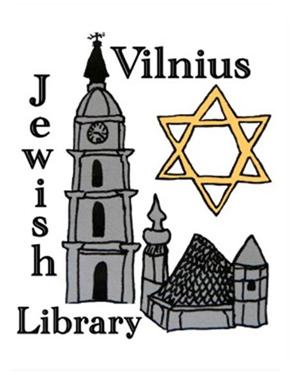
The Vilnius Jewish Library will be the first Jewish library in Lithuania since 1943, and we are happy to announce that the opening will take place 16 December. Location: Gedimino prospekto 24.
Wyman Brent is not like California Baptists in general. Several years ago he fell in love with Vilnius. His great passion in life is Jewish books - books written by or about Jews. Therefore, he has over the latest years bought more than 5.000 such books and taken them to Vilnius to open a Jewish library. Read below his own story about his ideals for a meaningful life.
Text: Wyman Brent
Using a wire brush to scrub a broken sink can help strengthen Jewish culture. Most people are not aware of this. Thus I found myself kneeling in a parking lot on a hot summer day with a hose and attempting to remove concrete dust from an old metal sink. To aid in the cleaning, the hose was turned on to wash away the dirt and dust. After a while, there was quite a stream of water running over the asphalt, down the street where it took a right at the intersection until it reached a storm drain. I only noticed this at the end when hot and tired, I was going to a café to get a cold drink.
What I did pay attention to while repeatedly running the brush and hose back and forth, up and down, left and right was the puddle created. The tiny pool of water gave off a big reflection of trains, trains going one direction or another, one city or another. Trains carrying passengers and trains carrying freight. That was now, but what about then. I had sat out many times over the past months on a balcony overlooking the parking lot from which one could sit and drink coffee or tea (your choice) and watch the trains roll by. It is an idyllic place to relax and read a good Jewish book…or maybe better to say a book by a Jew. I have a wide variety of reading material.
It never really occurred to me to think of how that rail line might have been used during the war. How many freight cars carrying ammunition, weapons, and other supplies did the Nazis send along that same line all those years ago? How many cattle cars were filled to beyond human capacity with people whose only “crime” was to be Jewish? It did occur to me this day as I looked at the puddle which I created as a result of working to improve Jewish life in Vilna. The thought brought tears to my eyes, and I was glad to be alone at that moment.
So how exactly does an old sink going from dirt and dust encrusted to somewhat less filthy improve things Jewish? The next day was to be the second event to promote the Vilnius Jewish Library. The first event had been a big success with members of the Jewish community, members of Parliament, and various Ambassadors in attendance. There was a presentation of books and other materials which would be in the future library when its doors were open to the public. The second event would present similar material to the previous. So how to make it different? I wrote to a friend in California asking that very question. She suggested a dining table covered with books, shelves lined with food and books, and a sink filled with…yes books.
|
|
The idea was to show that Jewish life, thought, and culture was as much a part of Lithuania as the food which we consume. One can no more avoid the influence of all things Jewish here than one can avoid finding beetroot soup in any restaurant which serves traditional Lithuanian food. Both are so much part of the fabric of society. |
The idea was to show that Jewish life, thought, and culture was as much a part of Lithuania as the food which we consume. One can no more avoid the influence of all things Jewish here than one can avoid finding beetroot soup in any restaurant which serves traditional Lithuanian food. Both are so much part of the fabric of society. That brings me back to the not so raging river of water running down the street. Cars were driving through the water and pedestrians were stepping over it. Nobody gave much thought if any to where the water came from or the reason for it to be there.
A wire brush and a green garden hose gave new life to an old sink. That old sink, still very much rusted and with broken bits and pieces, did its part to help get people in Vilna to once again give serious thought to the impact which all things Jewish have had on this country. The concrete dust which coated the sink had become hardened over time. The constant moisture in the air here made sure of that. Can’t the same be said of many people’s attitudes? They forget something because it is out of sight and out of mind. The thing sits neglected in a dark corner.
That old sink received a second life. Jewish life in Lithuania is doing the same. The recent opening of the Litvak Studies Institute, and the soon to open Vilnius Jewish Library is proof of that. The Lithuanian government is providing space, funding, furniture, and staffing. What they are not providing is more material for the library. That depends on those around the world who truly care about Jewish culture. Jewish life does not begin and end only within the borders of the USA and Israel. Things will never be as they were in the Jerusalem of Lithuania. However, things can and will be better than they are now.
For the past six years, I have dedicated my life to promoting tolerance and understanding. I have gotten down on my knees underneath a hot sun to scrub a broken sink. I have lifted box after heavy box of books until my back was aching. I moved from sunny Southern California to a land where I have seen it snow as early as October and as late as April. I have spent countless hours and tens of thousands of dollars to collect and ship books, CDs, and DVDs. During my journey from California to Lithuania, I stopped along the way and bought more material for the library. There were stops in London, Budapest, and Krakow. Each time my luggage became heavier and heavier. All of this I have gladly done and will gladly do the rest of my life. What are you willing to do to help strengthen Jewish culture and to fight anti-Semitism? Nobody is asking you to get down on your hands and knees. Nobody is asking for you to spend your last dollar as I have done. What I am asking is, what will you do today for Jewish culture?
|
|
|
Motto:
Be ashamed to die until you have won some victory for humanity.
- Horace Mann
- Bookmark :
- Digg
- del.icio.us
- Stumbleupon
- Redit it
Historians in the West don’t think that the Baltics and their people are important
- Posted by - (0) Comment
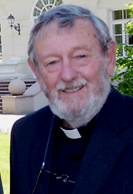
Dominican Father David O’Rourke, one of the two priest producers of “Red Terror on the Amber Coast.” Father O’Rourke is director of The Tatra Project (www.tatraproject.org), which provides educational resources and media on life under the former Soviet Union.
I lived and worked on and off in Vilnius, from 2000 until about 2009. Part of my work involved research in the film and photo archives that led to the documentary film, Red Terror on the Amber Coast. I was the writer and producer. I have only one point I want to make here, but I think it is important.
From the time that the Soviets first occupied the Baltics after the Molotov-Ribbentrop Pact until the fall of the Soviet system, essentially all the information about life in the Baltic Republics came from the occupying governments – Soviet and Nazi. Occupiers have their own agenda. Telling the truth about what they were doing in the countries they occupied was not one of them. To the contrary, both the Soviets and the Nazis were expert in producing self-promoting propaganda. So I believe it is both naïve and foolish to look to news and information reports produced by either of these regimes about the occupation years as though they were reliable. My own view is that relatively little concerning life during these years is known today outside these countries and their several diasporas. And very little is known because historians in the West don’t think that the Baltics and their people are important enough to their own studies to worry about.
David O'Rourke
California, USA.
- Bookmark :
- Digg
- del.icio.us
- Stumbleupon
- Redit it
- Posted by - (1) Comment
Non-Jewish witnesses to
Holocaust in Lithuania?
Washington, D.C. – The United States Holocaust Memorial Museum is looking for people to share their experiences of life in Lithuania during World War II and the Holocaust. Ina Navazelskis of the Museum’s Oral History Branch is particularly interested in speaking with non-Jewish Lithuanian witnesses to the Holocaust who now live in the U.S. or Canada.
“If you have a story to tell, or know somebody who does,” Navazelskis told VilNews, “I hope you’ll contact me. I want to hear your story and how it intersects with the Holocaust.”
Navazelskis can be reached at inavazelskis@ushmm.org.
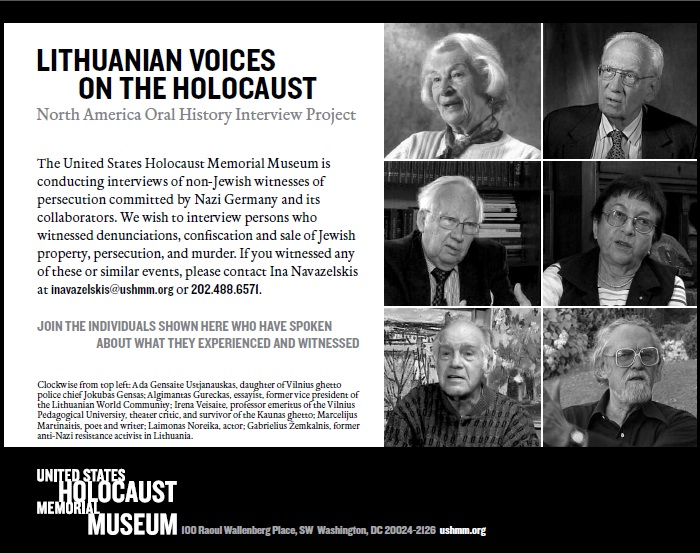
The U.S. Holocaust Memorial Museum is seeking people to talk to about the Holocaust in Lithuania.
This advertisement was placed in the Lithuanian-language magazine Draugas, published in Chicago.
As a result of outreach efforts by the museum, people are coming forward to tell stories that have never before been told. “They say, ‘I don’t want to go to my grave without sharing what I saw,’” Navazelskis said.
Navazelskis wants to know not only what people saw, but also who they were and what their world was like. “This will help us recapture a lost part of history,” she said. Since many of the direct witnesses have died, “this is the eleventh hour.”
“Maybe you saw a hidden Jewish child,” she said, “or knew Jewish students at your school who disappeared. Maybe you know of someone who helped to rescue Jews, or can tell us what people in your town had to say about what was happening to those who were deemed to be enemies of the Third Reich.”
Navazelskis wants to hear about deportations, looting of Jewish property, public reaction to the events of the Nazi occupation. She wants to learn how events were portrayed in newspapers, newsreels, radio broadcasts, and posters.
Interviewees have been tape-recorded or filmed in Europe, Israel, and North America. They range from ordinary citizens to public figures.
Marcelijus Martinaitis recounted that he was five years old and riding in a wagon with his father when he saw Jews being driven into the forest to be shot. His father covered his eyes, but he heard the screams of the victims.
Algimantas Gureckas, a former leader of the Lithuanian World Community, an émigré organization, recalled working in a ration card office in Panevezys, where he met scores of local citizens every day. He testified about how local people reacted on the day when the Jews of the city were shot.
Ada Gens offered testimony about her Lithuanian mother and her father, Jacob Gens, who headed the Jewish community within the Vilna Ghetto. She spoke of her father’s negotiations with the Nazi command of the ghetto and of his death at the hands of the Gestapo.
The late Laimonas Noreika testified that he was working in an orchard near the Ninth Fort, the notorious killing site near Kaunas, when a soldier approached and offered him a sweater because he seemed cold. Horrified, he realized the sweater must belong to a Jew who had been murdered at the fort.
The museum’s oral history archive contains more than 12,000 audio and video interviews. The collection is open to the public and will preserve these stories for future generations
To reach Ina Navazelskis, write to her at inavazelskis@ushmm.org.

Ellen Cassedy traces her Jewish family roots to Rokiskis and Siauliai. Her book, We Are Here: Memories of the Lithuanian Holocaust, will be published in March of 2012. She lives in Washington, D.C. Visit her website at www.ellencassedy.com.
- Bookmark :
- Digg
- del.icio.us
- Stumbleupon
- Redit it
VilNews e-magazine is published in Vilnius, Lithuania. Editor-in-Chief: Mr. Aage Myhre. Inquires to the editors: editor@VilNews.com.
Code of Ethics: See Section 2 – about VilNews. VilNews is not responsible for content on external links/web pages.
HOW TO ADVERTISE IN VILNEWS.
All content is copyrighted © 2011. UAB ‘VilNews’.

 Click on the buttons to open and read each of VilNews' 18 sub-sections
Click on the buttons to open and read each of VilNews' 18 sub-sections 















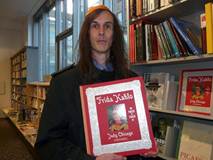
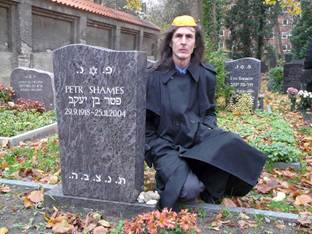









.jpg)



